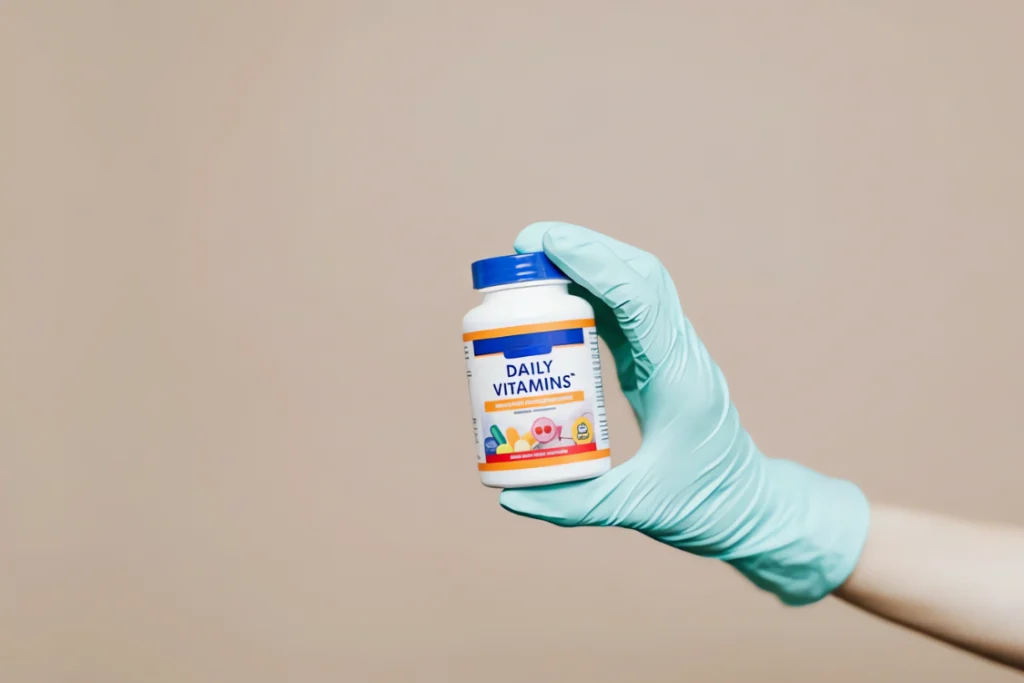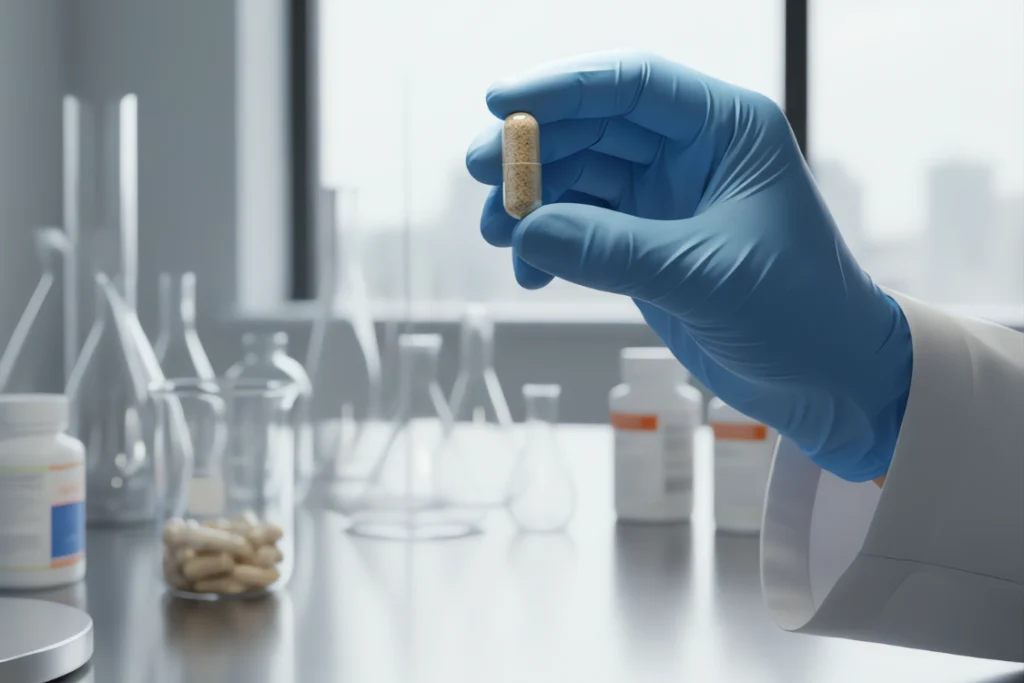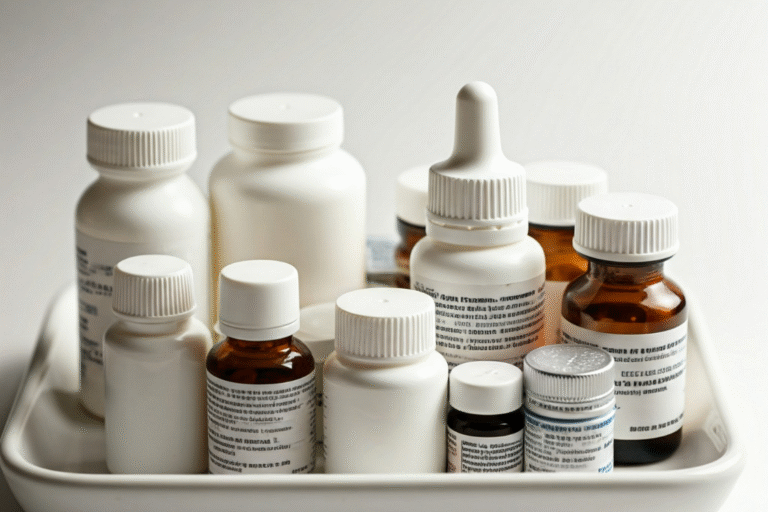In the dietary supplement industry, quality is a brand’s most valuable asset. Before any product reaches the market, it must undergo a supplement quality control testing panel to confirm its identity, purity, and composition. Skipping these tests can lead to product recalls, U.S. Food and Drug Administration (FDA) warning letters, or loss of customer confidence.
Quality control (QC) testing confirms that the ingredients listed on the product label match the actual formulation. It also screens for microbial contaminants and potential allergens to meet good manufacturing practices and uphold food safety standards.
Why QC Testing Is Essential in Supplements
Testing is how dietary supplement manufacturers demonstrate compliance and maintain credibility. A strong supplement quality control testing panel helps ensure that products meet federal food and regulatory requirements while maintaining consistency across production batches.
Protecting consumer safety
Proper quality testing lowers safety risks linked to contamination or adulteration. Each supplement should be tested for microbial contaminants, allergens, and other substances that could affect purity or labeling accuracy. These checks confirm that raw materials, including vitamins, minerals, and amino acids, meet recognized limits set by health and human services and other governing agencies. The goal is to validate compliance with food safety standards, not to suggest any disease prevention or medical treatment benefit.
Meeting FDA and GMP requirements
Under the Federal Food, Drug, and Cosmetic Act, every dietary supplement manufacturer must follow current good manufacturing practices (GMPs) and applicable U.S. Food and Drug Administration (FDA) regulations.
According to the National Institutes of Health Office of Dietary Supplements, GMPs are designed to ensure the identity, purity, strength, and composition of dietary supplements, helping prevent mislabeling, contamination, or inaccurate supplement facts panel information (Office of Dietary Supplements, 2023). Following these standards shows that manufacturers have systems to minimize variability and maintain consistent product quality.
Building customer trust
Transparency builds confidence between brands and consumers. When testing confirms that active ingredients match what appears on the product label, customers can see that a company is committed to accuracy and regulatory integrity. Sharing verified Certificates of Analysis (COAs) and meeting good manufacturing practices show accountability while avoiding any suggestion of health benefits or medical claims.

The Minimum Supplement QC Testing Panel
A sound supplement quality control testing panel verifies that each dietary supplement product is accurately labeled and produced within safe, acceptable limits. Tests should use validated, fit-for-purpose methods so results truly reflect identity, purity, and composition, not assumed health effects or clinical outcomes (Mudge, Betz, & Brown, 2016).
Gluten testing
For products labeled gluten-free, testing confirms gluten is below the U.S. Food and Drug Administration (FDA) threshold of 20 parts per million. This supports dietary supplement labeling accuracy and helps align with regulatory requirements without implying suitability for any medical condition.
Microbiology testing
Microbiological analysis checks for bacteria, yeast, and mold. Detecting contamination early in the manufacturing process supports food safety controls and reduces the chance that lots over accepted microbial limits enter commerce.
Potency testing
Potency testing measures whether active ingredients like vitamins, minerals, and each amino acid appear at the levels declared on the supplement facts panel. Results confirm formula accuracy for finished products and product formulation, not benefit, disease prevention, or treatment.
Heavy metals screening
Screening for heavy metals such as lead, mercury, arsenic, and cadmium helps confirm that raw materials and finished products meet specified limits. Results help identify potential sources such as soil, equipment, or packaging materials, supporting compliance and product quality.
Allergen testing (if applicable)
When a product states it is free from certain allergens, verification shows no undeclared other ingredients like soy, dairy, or nuts above trace limits. This maintains truthful product label disclosures for dietary supplements and aligns with regulations.
In-House vs. Third-Party Testing
Routine testing can occur in-house, through third-party laboratories, or both. These methods strengthen good manufacturing systems by verifying that supplements meet identity and composition requirements—not by proving medical outcomes.
The role of in-house labs
In-house facilities conduct checks throughout the manufacturing process to verify raw materials, confirm product formulation, and ensure consistency. Internal testing must follow NSF International and FDA standards under good manufacturing practices. These tests confirm production control, not health efficacy.
Why third-party verification matters
Independent labs provide objective analysis. They confirm that results align with the Federal Trade Commission and the FDA expectations for accuracy and transparency. Third-party data adds credibility but should never be used as proof of health improvement or disease prevention.
When to use both
Using both internal and external testing creates reliable oversight. Internal labs handle day-to-day checks, while third-party verification offers an independent review. The combined approach provides direct access to validated data and documentation that supports compliance.

How to Ask Your Manufacturer About Their Testing Panel
Asking informed questions helps confirm that your dietary supplement manufacturer follows consistent testing and regulatory procedures. These discussions should focus on documentation, not medical claims.
- Do you test every batch or only select ones?
- Which tests are included in your standard panel?
- Do you use accredited third-party labs for verification?
- Can you provide recent Certificates of Analysis (COAs)?
Manufacturers should be transparent about their processes and able to show compliance with good manufacturing practices, education act provisions, and FDA record-keeping requirements.
Red Flags in Quality Control Testing
Regulatory studies show that weak oversight in the dietary supplement industry often stems from poor documentation, limited compliance with current good manufacturing practices (GMPs), and missing verification data. When dietary supplement manufacturers skip proper testing or refuse transparency, the risk to product quality and consumer safety rises (Starr, 2015).
Here are the clearest warning signs to watch for:
- Refusal to provide Certificates of Analysis (COAs) or testing data
A manufacturer unwilling to share COAs or ingredient test results may be concealing issues with purity, potency, or compliance. Legitimate suppliers provide these documents routinely. - Inconsistent or incomplete testing panels
Missing key tests, such as microbiology, heavy metals, or potency analysis, against the supplement facts panel suggest that the company is not following established good manufacturing or food safety protocols. - Exclusive reliance on in-house testing without verification
Internal labs can miss bias or procedural errors. Third-party testing by accredited facilities ensures that finished products meet FDA regulations and independent validation standards. - Lack of clear written regulations or testing procedures
Suppliers should have formal, traceable documentation for manufacturing processes, sample handling, and corrective actions. Ambiguous or missing SOPs point to weak internal oversight.
Suppliers that consistently follow good manufacturing practices, use validated methods, and allow independent audits generally maintain stronger product quality and regulatory compliance without overstating health claims.

Quality Testing Protects Your Brand and Customers
A well-structured supplement quality control testing panel is the foundation of a responsible and compliant operation in the dietary supplement industry. It confirms that each product meets established U.S. Food and Drug Administration (FDA) and current GMP requirements for identity, purity, and composition. Consistent testing for gluten, microbial contaminants, heavy metals, and potency ensures that supplements are produced safely and labeled accurately.
Maintaining these standards shows accountability, supports transparent communication with consumers, and minimizes safety risks linked to poor documentation or incomplete testing. When manufacturers use validated methods, work with accredited third-party laboratories, and provide clear Certificates of Analysis, they build trust and protect both their reputation and their customers. In a competitive market, quality testing is more than compliance. It is proof of integrity.
Frequently Asked Questions
What is a supplement quality control testing panel?
It’s a series of laboratory assessments used to verify that dietary supplements meet identity, purity, and composition requirements under FDA and GMP rules.
Which tests are the most important for supplements?
Common essentials include gluten verification, microbiological analysis, potency measurement, and heavy metals screening for regulatory compliance.
Do I need third-party testing if my manufacturer has in-house labs?
Third-party testing adds independent confirmation that a dietary supplement product meets documented safety and quality standards.
How often should supplements be tested?
Each production lot should undergo quality control testing appropriate to the manufacturing process and risk profile.
Can I request Certificates of Analysis (COAs) from my manufacturer?
Yes, reputable manufacturers provide COAs to verify results and demonstrate compliance with regulatory and product quality obligations.
References
- Mudge EM, Betz JM, Brown PN. The Importance of Method Selection in Determining Product Integrity for Nutrition Research. Adv Nutr. 2016 Mar 15;7(2):390-8. doi: 10.3945/an.115.010611. PMID: 26980823; PMCID: PMC4785475.
- Office of Dietary Supplements. (2023, January 4). Dietary supplements: What you need to know [Fact sheet]. National Institutes of Health, U.S. Department of Health and Human Services. https://ods.od.nih.gov/factsheets/WYNTK-Consumer/
- Starr RR. Too little, too late: ineffective regulation of dietary supplements in the United States. Am J Public Health. 2015 Mar;105(3):478-85. doi: 10.2105/AJPH.2014.302348. Epub 2015 Jan 20. PMID: 25602879; PMCID: PMC4330859.





